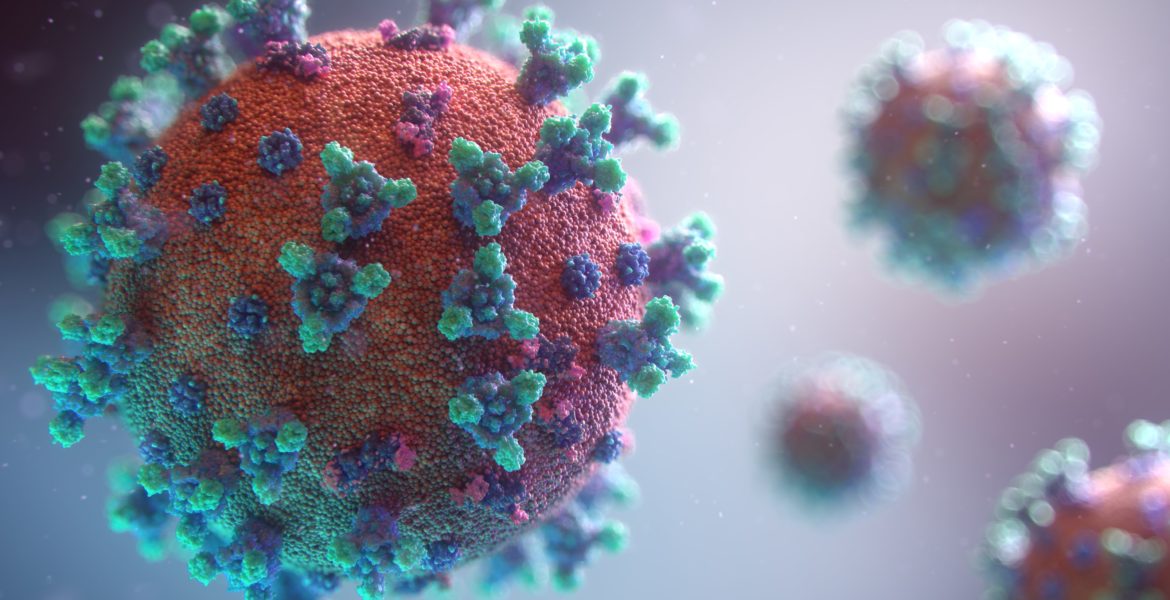The Coronavirus threat is real and should be taken seriously. However, what we can’t do is panic. Why? Because fear impacts our immune system by stimulating the release of cortisol, a corticosteroid. Cortisol is immunosuppressive and increases chemicals that suppress cytokines, which are chemicals involved in inflammation. The decreased cytokine production inhibits pro-inflammatory gene transcription, essentially weakening your immune response, and leaving your system more vulnerable to infection. So what can we do? We asked Dr. Joel Rosen for information regarding the Coronavirus and viruses in general and a few tips we need for staying healthy and keeping our immune system strong. Read on to get these valuable insights and remember DON’T PANIC!
The Coronavirus
Let’s start by defining a Coronavirus. According to the World Health Organization, Coronaviruses are a large family of viruses that may cause illness in animals or humans. In humans, several coronaviruses are known to cause respiratory infections ranging from the common cold to more severe diseases such as Middle East Respiratory Syndrome (MERS) and Severe Acute Respiratory Syndrome (SARS). The most recently discovered coronavirus causes coronavirus disease COVID-19. is what is considered zoonotic. A zoonosis (plural zoonoses, or zoonotic diseases) is an infectious disease caused by bacteria, viruses, or parasites that spread from non-human animals (usually vertebrates) to humans meaning they first develop in animals before developing in humans. For the virus to pass from an animal to humans, a person has to come into close contact with an animal that carries the infection. Once the virus develops in people, coronaviruses can be spread from person to person through respiratory droplets moving through the air when you cough or sneeze.
How We Get Viruses
According to Dr. Joel Rosen, viruses are opportunistic and considered a biological agent that reproduces inside the cells of living hosts. When the cells become infected by a virus, a host cell is forced to produce thousands of identical copies of the original virus at an extraordinary rate. Viruses can infect all types of life forms such as animals, plants, microorganisms, and bacteria. Viruses can’t die, for the simple reason that they aren’t alive in the first place. Although they contain genetic instructions in the form of DNA (or the related molecule, RNA), viruses can’t thrive independently. Instead, they must invade a host organism and hijack its genetic instructions. They can also live in latency and can be expressed later and possibly create problems.
How We Can Reduce Viral Opportunities
Dr. Rosen recommends listening to your body and rest if you’re feeling sick. The body works hard to fight off that virus or infection. Pay attention to your breathing to help the transport of oxygen to the cells which are critical for a strong immune response. Increase your nitric oxide production by consuming more green leafy vegetables and rainbow-like colored deep red fruits and vegetables. Include digestive support with some enzymes like Pancreatic Enzymes, Bitters, and Betaine Hydrochloride to name a few. Remember to drink clean healthy water and avoid sodas and sugary drinks.
Include good vitamin support like Vitamin C, Vitamin D, and Vitamin A. Consider taking nucleotides and immune-supporting formulas. Limit the use of plastics and fire retardant products, because they can contribute to inflammation in the body and become endocrine disruptors. Remember to wash your hands regularly with hot water and clean soap and avoid crowds and large gatherings, if possible. Most importantly, stay calm and use common sense when it comes to staying healthy. With proper nutritional support and a healthy diet, our bodies have the ability to survive viruses.


